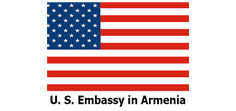On October 5, during a question-and-answer session with the government in the National Assembly, Prime Minister Nikol Pashinyan, talking about the Karabakh negotiations, again blamed the former authorities for recognizing Karabakh as part of Azerbaijan, for failing the negotiation process and, in his words, for the “capitulation document” left on his table.
There are several false or manipulative claims in the Prime Minister’s speech from the tribune of the National Assembly, which contradict not only the content of the negotiation documents at different stages, but also the previous statements made by Pashinyan himself.
On the Madrid principles
Speaking about the Madrid principles, Nikol Pashinyan blames the former Foreign Minister Vardan Oskanian of actually recognizing Nagorno Karabakh as part of Azerbaijan by those principles.
“Has any government in Armenia recognized Karabakh as part of Azerbaijan, and which government recognized Karabakh as part of Azerbaijan?” Yes, the Republic of Armenia recognized Karabakh as a part of Azerbaijan, and this was authored by Vardan Oskanyan, whom you mentioned. Because at the moment Armenia adopted the Madrid principles as a basis for negotiations, upon that moment it recognized Nagorno Karabakh as part of Azerbaijan.”
Meanwhile, as per the published documents, there are three Madrid principles, on the basis of which later attempts were made to create negotiation documents.
Those principles are as follows:
Non-use of force or threat of force;
Territorial integrity of states,
Equal rights and self-determination of peoples.
Among these principles, the Prime Minister chose only the principle of territorial integrity of states. However, according to the same Madrid document, the final status of Nagorno-Karabakh was to be determined through a plebiscite, which would allow the possibility of any status. In that clause, it was also mentioned that the plebiscite would be organized among the ethnic proportion of the population of Nagorno Karabakh in 1988. It is noteworthy that the Armenian population of Artsakh (NKAO) made up an absolute majority, 76.9%, according to the data of 1989. Azerbaijanis made up 21.5% of the total population.
In other words, by speaking about the Madrid principles, Nikol Pashinyan omits the principle of self-determination of peoples.
On the occupation
Continuing the accusations against Vardan Oskanyan, Nikol Pashinyan, in order to substantiate his above-mentioned claim, reminds the statement of the former foreign minister that Armenia occupied the territories of Azerbaijan.
“Moreover, it was Vardan Oskanyan who publicly recognized the Republic of Armenia as an occupier,” Pashinyan stated.
This claim is also manipulative as Pashinyan presents it out of the context of Oskanyan’s general thought.
This is about an interview given by Vardan Oskanian in 2001 where he talks about the Karabakh conflict and negotiations.
First, Oskanyan states: “Armenia will not sign a document that states that Karabakh is part of Azerbaijan.” In other words, in 2001, the Minister of Foreign Affairs ruled out Artsakh being a part of Azerbaijan under any circumstances.
Afterwards, Oskanyan states that in the case of the settlement of the Karabakh conflict desirable for Armenia, 6 out of 7 regions will be returned to Azerbaijan.
“You see, no matter how painful it is, if there are residents there (in the Zangelan region, ed.), if we get the desired status for Karabakh, all the occupied territories except Lachin have tobe returned,” Oskanyan stated.
That is to say, it is obvious that Oskanyan’s talk about the occupied territories does not refer to Karabakh in general, but to the 7 neighboring regions of the former Nagorno-Karabakh, 6 of which would be returned to Azerbaijan in the event of a resolution of the conflict. And Pashinyan’s claim that since Oskanyan talked about occupying the territories of Azerbaijan, he thereby recognized Karabakh as part of Azerbaijan, is manipulative.
On the Istanbul Charter
As justification for his above-mentioned claim, Pashinyan also mentions the Istanbul Charter signed in 1999.
“Robert Kocharyan also left Karabakh out of the negotiation process as a precondition for assuming power in 1998, thereby laying the cornerstone, and went on ratifying the Istanbul Charter, which reads that… I have quoted parts of those complete documents from this tribune, which reads that by ratifying the security charter in Europe, they said that the rights and freedoms of the peoples living in those countries are not only not undermined, but on the contrary, they strengthen the territorial integrity and sovereignty. They signed this with their broken hands, let them not try to blame anything on us.”
The same claim of Nikol Pashinyan regarding the Istanbul Charter was addressed by our colleagues from “Civilnet” showing that contrary to it, there is no mention of the principle of territorial integrity in the part concerning Nagorno Karabakh.
Moreover, this principle is not invoked exclusively in the section related to Karabakh, for other conflicts in the post-Soviet territory, both the principle of sovereignty and territorial integrity were at the basis of their settlement.
On the capitulation document
In his speech, Nikol Pashinyan accuses Serzh Sargsyan of capitulation. “I once again say that the recipients of all the accusations directed at us, without exception, are themselves. From the accusation of recognizing Karabakh as part of Azerbaijan, to the accusation of capitulation. Because the paper that Serzh Sargsyan left on the table, the negotiation paper that he left, if we assess it by those standards and resolutions, it was a capitulation paper. Serzh Sargsyan left the capitulation paper on the table and left. Let us state this.”
During the campaign for last year’s snap parliamentary elections, Serzh Sargsyan published a recording in which Nikol Pashinyan told his teammates during a closed meeting about a conversation that took place over a coffee table in Sochi just 4 days after he was elected Prime Minister.
In the recording, Nikol Pashinyan says that Putin, Nazarbayev and Lukashenko urged him to resolve the Karabakh issue, taking advantage of the great public trust, and stressed: “Azerbaijani President Aliyev understands that Karabakh will never be part of Azerbaijan.”
As per this publication, Nikol Pashinyan himself states that, according to some leaders of the CIS countries, the negotiations had reached such a level where “Karabakh would never be part of Azerbaijan.”
Thus, let us assert that Nikol Pashinyan’s statements from the tribune of the National Assembly regarding the inclusion of Karabakh in the territory of Azerbaijan, the failure of the negotiations and the leaving of a capitulation document as a negotiation legacy are false and/or manipulative.
Sevada Ghazaryan

 FACTOMETER
FACTOMETER











